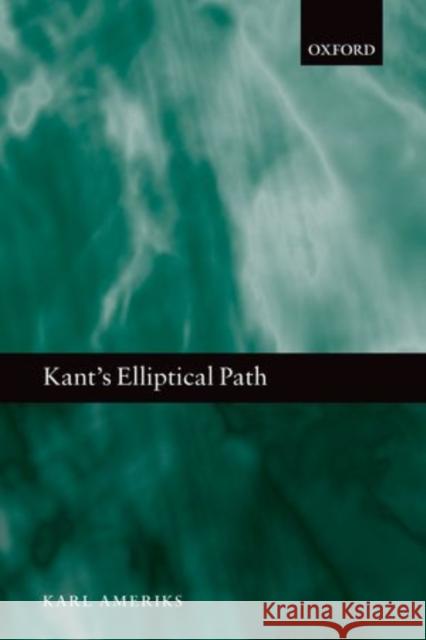Kant's Elliptical Path » książka
Kant's Elliptical Path
ISBN-13: 9780199693696 / Angielski / Miękka / 2012 / 365 str.
Kant's Elliptical Path
ISBN-13: 9780199693696 / Angielski / Miękka / 2012 / 365 str.
(netto: 221,16 VAT: 5%)
Najniższa cena z 30 dni: 216,23
ok. 16-18 dni roboczych.
Darmowa dostawa!
Kant's Elliptical Path explores the main stages and key concepts in the development of Kant's Critical philosophy, from the early 1760s to the 1790s. Karl Ameriks provides a detailed and concise account of the main ways in which the later Critical works provide a plausible defence of the conception of humanity's fundamental end that Kant turned to after reading Rousseau in the 1760s. Separate essays are devoted to each of the three Critiques, as well as to earlier notes and lectures and several of Kant's later writings on history and religion. A final section devotes three chapters to post-Kantian developments in German Romanticism, accounts of tragedy up through Nietzsche, and contemporary philosophy. The theme of an elliptical path is shown to be relevant to these writers as well as to many aspects of Kant's own life and work.
The topics of the book include fundamental issues in epistemology and metaphysics, with a new defense of the Amerik's 'moderate' interpretation of transcendental idealism. Other essays evaluate Kant's concept of will and reliance on a 'fact of reason' in his practical philosophy, as well as his critique of traditional theodicies, and the historical character of his defense of religion and the concepts of creation and hope within 'the boundaries of mere reason'. Kant's Elliptical Path will be of value to historians of modern philosophy and Kant scholars, while its treatment of several literary figures and issues in aesthetics, politics, history, and theology make it relevant to readers outside of philosophy.











